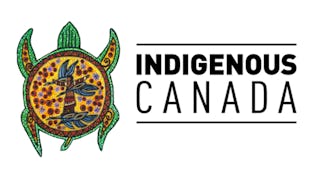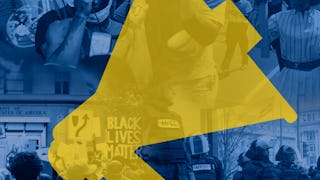Increasingly, terms such as “colonialism,” “decolonization,” and “social structures,” appear in media, conversations, and educational spaces, often without nuanced explanations of these concepts and how they relate to current U.S. society and the individuals in it.

Profitez d'une croissance illimitée avec un an de Coursera Plus pour 199 $ (régulièrement 399 $). Économisez maintenant.

Ce que vous apprendrez
Develop a living understanding of ongoing settler colonialism in the U.S.
Analyze everyday forms of settler colonialism in your own life, work, and interests.
Describe Indigenous Peoples/Native Nations' robust presence.
Dream alongside others about anti-colonial futures.
Compétences que vous acquerrez
- Catégorie : Culture
- Catégorie : Intercultural Competence
- Catégorie : Land Management
- Catégorie : Public History
- Catégorie : Relationship Building
- Catégorie : Diversity Awareness
- Catégorie : Social Studies
- Catégorie : Environmental Issue
- Catégorie : Social Determinants Of Health
- Catégorie : Culture Transformation
- Catégorie : Cultural Diversity
- Catégorie : Sociology
- Catégorie : Social Justice
- Catégorie : Health Equity
Détails à connaître
Découvrez comment les employés des entreprises prestigieuses maîtrisent des compétences recherchées

Il y a 7 modules dans ce cours
Inclus
1 vidéo2 lectures
This module introduces the U.S. as a current settler colonial nation and guides participants in considering their own relationships (or lack thereof) with diverse and numerous Indigenous Peoples/Native Nations
Inclus
2 vidéos1 lecture2 sujets de discussion2 plugins
This module provides the first cornerstone in understanding ongoing settler colonialism—the attempt to eliminate Native Peoples. Additionally, this module showcases the enduring presence of Native Peoples despite settler colonialism's ongoing attempts of erasure.
Inclus
5 vidéos4 lectures2 sujets de discussion2 plugins
This module provides the second cornerstone in understanding ongoing settler colonialism—the imposition of property, ownership, and possession. Furthermore, this module highlights pre-colonial (which are also current), Indigenous approaches to land, knowledge, and more-than-human relatives that are not rooted in ownership and possession.
Inclus
4 vidéos4 lectures4 sujets de discussion1 plugin
This module outlines the third cornerstone in understanding ongoing settler colonialism—the production of anti-relationality via the erasure, damage, and unavailability of certain kinds of relationships between people, land, ideas, cultures, and more-than-human relatives. This settler colonial anti-relationality prioritizes principles of individualism, human-centeredness, and ownership/property. Additionally, this module demonstrates the centrality of meaningful relationships in Indigenous worldviews and the importance of interconnection, care, responsibility, collectivity, consideration, and reciprocity.
Inclus
4 vidéos3 lectures3 sujets de discussion4 plugins
This module provides the fourth cornerstone in understanding ongoing settler colonialism—the naturalization (making it seem typical and unremarkable to all people in the U.S.) to have limited life options. Specifically, settler colonialism socializes individuals, families, and groups of people into assuming there are only certain settler colonial-approved ways—often singular, binary, or on a narrow spectrum—to learn, pray, create a family, love, participate economically, rest, eat, organize time, dress, govern, birth, die, attend to health, work, generate/share knowledge, be in relationships, conduct research, and so much more. Furthermore, this module highlights the expansive possibilities that exist for social configurations, governing, worldviews, and more that Indigenous knowledges and futures show us.
Inclus
4 vidéos7 lectures2 sujets de discussion1 plugin
***
Inclus
1 vidéo1 lecture
Instructeurs


Offert par
En savoir plus sur Governance and Society
 Statut : Prévisualisation
Statut : PrévisualisationUniversity of Alberta
 Statut : Prévisualisation
Statut : PrévisualisationUniversity of Toronto
 Statut : Gratuit
Statut : GratuitUniversity of Colorado Boulder
 Statut : Gratuit
Statut : GratuitUniversity of Michigan
Pour quelles raisons les étudiants sur Coursera nous choisissent-ils pour leur carrière ?




Foire Aux Questions
To access the course materials, assignments and to earn a Certificate, you will need to purchase the Certificate experience when you enroll in a course. You can try a Free Trial instead, or apply for Financial Aid. The course may offer 'Full Course, No Certificate' instead. This option lets you see all course materials, submit required assessments, and get a final grade. This also means that you will not be able to purchase a Certificate experience.
Plus de questions
Aide financière disponible,





